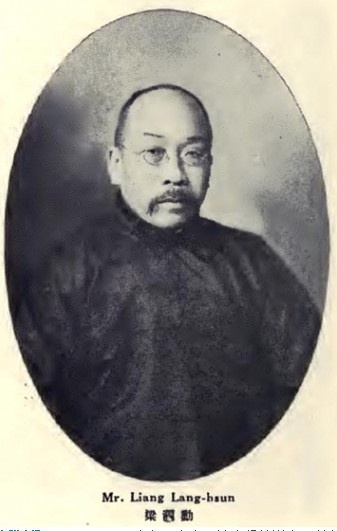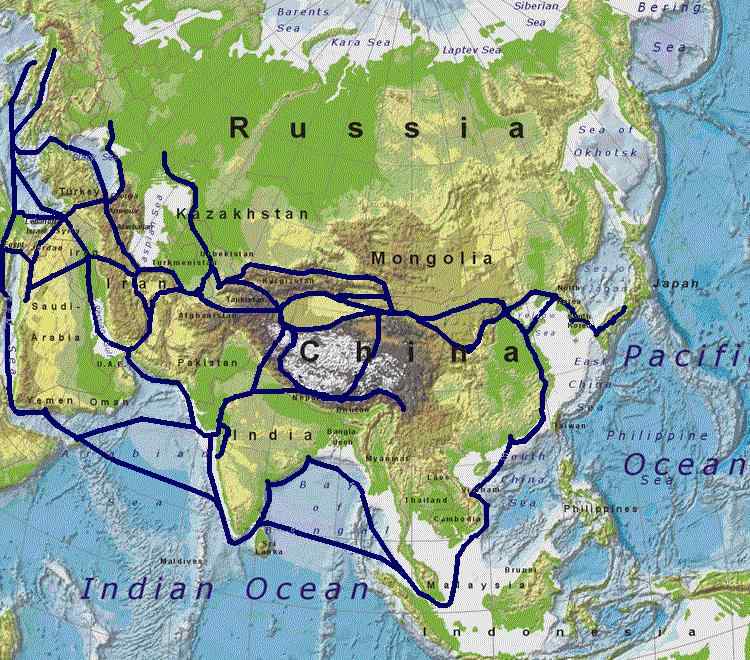|
China–Australia Free Trade Agreement
The China–Australia Free Trade Agreement (ChAFTA) is a bilateral trade, bilateral Free Trade Agreement (FTA) between the governments of Australia and People's Republic of China, China. Since negotiations began, 21 negotiating rounds have been completed. The deal was completed on 17 November 2014 and details released two days later, nearly 10 years after its first round of negotiations that began on 23 May 2005 after a joint feasibility study. The free trade agreement was signed between the two countries on 17 June 2015. Following the usual treaty making process the agreement came into force on 20 December 2015, after the Chinese Government completed its domestic legal and legislative processes and the Australian Parliament’s Joint Standing Committee on Treaties and the Senate Foreign Affairs, Defence and Trade References Committee finished a review. Background According to the Australian Department of Foreign Affairs and Trade, in 2014, China was Australia's largest export ma ... [...More Info...] [...Related Items...] OR: [Wikipedia] [Google] [Baidu] |
Andrew Robb
Andrew John Robb (born 20 August 1951) is a former Australian politician. He was a member of the House of Representatives from 2004 to 2016, representing the Liberal Party. He served as Minister for Trade and Investment (2013–2016) in the Abbott and Turnbull Governments, and also briefly as Minister for Vocational and Further Education in the Howard Government in 2007. Before entering parliament, he was the federal director of the Liberal Party and oversaw the party's return to government at the 1996 federal election. While he was Minister for Trade and Investment, Robb approved Chinese company Shandong Landbridge Group to lease Port Darwin for 99 years. As soon as he left politics, Robb was hired by Shandong Landbridge on a $880,000 per year salary. In 2019, Robb left the position, shortly before a new foreign-interference law took effect. Background Robb, one of nine children, was born to Frank and Marie Robb, on a dairy farm in Epping which lies north of Melbourn ... [...More Info...] [...Related Items...] OR: [Wikipedia] [Google] [Baidu] |
Free Trade Agreements Of China
Free may refer to: Concept * Freedom, having the ability to do something, without having to obey anyone/anything * Freethought, a position that beliefs should be formed only on the basis of logic, reason, and empiricism * Emancipate, to procure political rights, as for a disenfranchised group * Free will, control exercised by rational agents over their actions and decisions * Free of charge, also known as gratis. See Gratis vs libre. Computing * Free (programming), a function that releases dynamically allocated memory for reuse * Free format, a file format which can be used without restrictions * Free software, software usable and distributable with few restrictions and no payment * Freeware, a broader class of software available at no cost Mathematics * Free object ** Free abelian group ** Free algebra ** Free group ** Free module ** Free semigroup * Free variable People * Free (surname) * Free (rapper) (born 1968), or Free Marie, American rapper and media personality ... [...More Info...] [...Related Items...] OR: [Wikipedia] [Google] [Baidu] |
Australia–China Relations
Consular relations between China and Australia were first established in 1909, and diplomatic relations were established in 1941. Australia continued to recognise the Republic of China (ROC) government after it lost the Chinese Civil War and retreated to Taiwan in 1949, but switched recognition to the People's Republic of China (PRC) on 21 December 1972. The relationship between China and Australia has grown considerably over the years. Both countries are actively engaged economically, culturally and politically which spans numerous organisations such as APEC, East Asia Summit and the G20. China is Australia's largest trading partner, and has invested in Australian mining companies. Relations between the two countries began to deteriorate in 2018 due to growing concerns of Chinese political influence in various sectors of Australian society including the Government, universities and media as well as China's stance on the South China Sea dispute. The COVID-19 pandemic has exacerba ... [...More Info...] [...Related Items...] OR: [Wikipedia] [Google] [Baidu] |
Australia–Korea Free Trade Agreement
The Korea–Australia Free Trade Agreement (KAFTA) is a bilateral agreement seeking to reduce trade and investment barriers between Australia and South Korea. The agreement, which came into effect on the 12th of December 2014 provides Australian goods exporters, service providers and investors with significantly improved access to the South Korean market. The trade agreement stems from decades of bilateral relations, encompassing security, trade and diplomatic ties from 1962, when then President Park Chung-Hee introduced a series of five-year plans designed to spur globalisation efforts and industrial development in Korea following the end of the Korean War. Historical Background Before the Korean War began on the 25 June 1950, Australian involvement in the Korean region was very limited, with the first documented contact between Korea and Australia occurring in 1889 when a group of missionaries from Australia arrived in Busan. Bilateral relations between Australia and the ... [...More Info...] [...Related Items...] OR: [Wikipedia] [Google] [Baidu] |
Japan–Australia Economic Partnership Agreement
The Japan–Australia Economic Partnership Agreement was concluded between Australia and Japan in November 2014 and took effect January 15, 2015. Background Australia's negotiations for an agreement with Japan began under the Howard Government in 2007.Australia strikes free trade deal with Japan, beef and horticultural industries secure major concessions ABC; 8 April 2014 In April 2014, Australia's Prime Minister led a trade delegation to Japan, a ... [...More Info...] [...Related Items...] OR: [Wikipedia] [Google] [Baidu] |
New Zealand–China Free Trade Agreement
The New Zealand–China Free Trade Agreement is a bilateral free trade agreement signed between the People's Republic of China and New Zealand in April 2008. It is the first free trade agreement that China has signed with any developed country, and New Zealand's largest trade deal since the 1983 Closer Economic Relations agreement with Australia. The New Zealand-China FTA was signed on 7 April 2008 in Beijing, after negotiations that spanned fifteen rounds over three years. It entered into force on 1 October 2008, after ratification by the New Zealand Parliament. The provisions of the agreement are expected to be phased in gradually over 12 years, fully coming into force in 2019. Agreements Under the agreement, 37 per cent of Chinese exports to New Zealand and 35 per cent of New Zealand exports to China will be tariff free by October 2008. All tariffs for Chinese exports to New Zealand will be eliminated by 2016, and 96 per cent of New Zealand exports to China will be tariff free by ... [...More Info...] [...Related Items...] OR: [Wikipedia] [Google] [Baidu] |
Market Access
In international trade, market access is a company's ability to enter a foreign market by selling its goods and services in another country. Market access is not the same as free trade, because market access is normally subject to conditions or requirements (such as tariffs or quotas), whereas under ideal free trade conditions goods and services can circulate across borders without any barriers to trade. Expanding market access is therefore often a more achievable goal of trade negotiations than achieving free trade. Market access concessions and limitations to market access differ greatly between trade in goods and trade in services. While market access for goods mainly involves measures at the border such as customs duties or quantitative restrictions, market access for services relates more to the application of domestic regulation behind the border. Moreover, in a world of proliferating regionalism, preferential market access for goods and services also have distinctive charact ... [...More Info...] [...Related Items...] OR: [Wikipedia] [Google] [Baidu] |
Economic Liberalization
Economic liberalization (or economic liberalisation) is the lessening of government regulations and restrictions in an economy in exchange for greater participation by private entities. In politics, the doctrine is associated with classical liberalism and neoliberalism. Liberalization in short is "the removal of controls" to encourage economic development. Many countries have pursued and followed the path of economic liberalization in the 1980s, 1990s and in the 21st century, with the stated goal of maintaining or increasing their competitiveness as business environments. Liberalization policies may or often include the partial or complete privatization of government institutions and State ownership, state-owned assets, greater labour market flexibility, lower tax rates for businesses, less restrictions on both domestic and foreign capital, open markets, etc. In support of liberalization, former British prime minister Tony Blair wrote that: "Success will go to those companies and ... [...More Info...] [...Related Items...] OR: [Wikipedia] [Google] [Baidu] |
Gao Hucheng
Gao Hucheng (; born August 1951) is a retired Chinese politician and business executive. Between 2013 and 2017, he served as the Commerce Minister of the People's Republic of China. Previously, he was Vice Minister of Commerce and Vice Chairman of Guangxi Zhuang Autonomous Region. Gao holds a doctoral degree in sociology from the University of Paris VII and is fluent in French. Career Education and industry Gao Hucheng was born in Shuo County (now Shuozhou city), Shanxi province in 1951. At age 17 he was sent to work at a village in Hebei province, and later at a cement factory in Datong, Shanxi. In 1972 Gao was chosen to study French at the Beijing Second Foreign Languages Institute, and in 1975 he went abroad to study at the National University of Zaire in Kinshasa, capital of Zaire (now known as Democratic Republic of Congo). From 1977 to 1980 Gao worked for the Chinese embassy in Zaire as a commercial officer. In 1980 Gao Hucheng joined China National Machinery and ... [...More Info...] [...Related Items...] OR: [Wikipedia] [Google] [Baidu] |
Xi Jinping
Xi Jinping ( ; ; ; born 15 June 1953) is a Chinese politician who has served as the general secretary of the Chinese Communist Party (CCP) and chairman of the Central Military Commission (CMC), and thus as the paramount leader of China, since 2012. Xi has also served as the president of the People's Republic of China (PRC) since 2013. The son of Chinese Communist veteran Xi Zhongxun, Xi was exiled to rural Yanchuan County as a teenager following his father's purge during the Cultural Revolution. He lived in a yaodong in the village of Liangjiahe, Shaanxi province, where he joined the CCP after several failed attempts and worked as the local party secretary. After studying chemical engineering at Tsinghua University as a worker-peasant-soldier student, Xi rose through the ranks politically in China's coastal provinces. Xi was governor of Fujian from 1999 to 2002, before becoming governor and party secretary of neighboring Zhejiang from 2002 to 2007. Following dismissal of ... [...More Info...] [...Related Items...] OR: [Wikipedia] [Google] [Baidu] |



